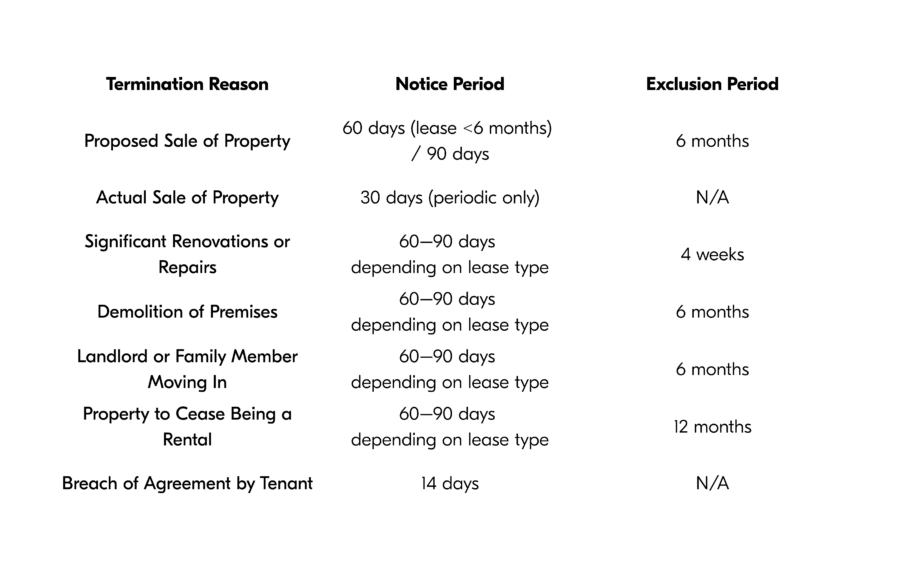Big changes have arrived for the rental market in New South Wales. As part of the NSW Residential Tenancies Amendment Bill 2025, new laws are now in effect that bring greater clarity, structure, and fairness to both tenants and landlords when it comes to ending a lease.
At Upstate, we’ve taken a deep dive into these changes so we can guide you, whether you’re renting a home or managing one. The legislation outlines specific, legally valid reasons a landlord can end a tenancy, clearer notice periods, new rules for pet approvals, and tighter restrictions to prevent misuse of termination grounds.
Here’s what you need to know and how we can help you navigate it.

Navigating lease changes starts with local knowledge and an expert team.
For Tenants: Clarity, Fairness, and Protection
If you’re currently renting, these new laws are a win for transparency and your peace of mind.
One of the most important shifts is that landlords can no longer end tenancies without a clear, valid reason. This means you’re protected from unexpected or vague terminations and you now have more time to prepare when a lease is coming to an end.
Here’s how the new laws protect you:
- Sale of Property: If your home is being put up for sale, the notice period has been extended to 60 days for leases under six months, and 90 days for periodic or longer leases.
- Major Renovations, Demolition, or Change of Use: Whether your property is being renovated, demolished, or taken off the rental market altogether, you will be given between 60 to 90 days’ notice depending on your lease. What’s more, landlords must now observe an exclusion period, meaning they can’t just relist the property straight after. For example, if you’re being asked to leave due to renovations, they can’t rent the property out again for at least four weeks.
- Moving in of the Landlord or a Family Member: If your landlord or their family wants to live in the property, they must provide 60 to 90 days’ notice and can’t re-list the property for six months, ensuring the reason is genuine.
- Pet Ownership: If you want to bring a pet into your rental, your landlord must now give a valid reason if they decline. They can’t just say no without cause, it must be due to property conditions, council restrictions, or something similar.
At Upstate, we understand how stressful uncertainty around housing can be. That’s why our team is committed to advocating for fair and respectful treatment of all tenants and landlords alike. If you’re unsure whether a termination notice is valid, or if you’re seeking approval for a pet, our property management team is here to assess your situation carefully and offer guidance every step of the way.

Smart property presentation, smarter legal insights – get both with Upstate.
For Landlords: Empowered by Structure
If you’re a landlord, the new legislation provides greater clarity and structure when ending a tenancy. With clearly defined termination reasons and notice periods, you can make informed decisions about your property while staying compliant and transparent.
Here’s a quick reference table outlining the key termination grounds now recognised by law:

Understand your rights and obligations – Upstate makes compliance clear.
- New Notice & Exclusion Periods: For example, if you’re planning a renovation that will make the property uninhabitable, you’ll need to provide 60–90 days’ notice depending on the lease and wait at least four weeks after termination before signing a new lease. In the case of demolition or permanent removal from the rental pool, a six to twelve month exclusion period applies.
- Clearer Pet Policies: You are now required to provide specific reasons if refusing a pet request. Acceptable grounds include the risk of damage beyond the bond, unsuitable property conditions, or restrictions in council regulations. This change helps set a more consistent and fair standard across tenancies.
At Upstate, we help landlords apply these rules effectively while protecting their property investment. Our experienced team will assess each situation, whether it’s a proposed sale, renovations, or a request for a pet, so that you’re making decisions that are compliant, well-documented, and fair.
We know no two properties or tenancies are the same. That’s why we take a tailored approach – helping you understand the new legal obligations, manage risk, and maintain a positive relationship with your tenants.

Supporting tenants and landlords alike through every change.
Navigating the Changes Together
These 2025 amendments represent the most significant changes to rental laws in NSW since 2010. For both tenants and landlords, it’s never been more important to understand your rights and responsibilities and to have a team by your side who can translate the legal details into practical advice.
At Upstate, our property experts are across every update. We’ve already helped clients on both sides of the rental equation navigate these reforms confidently and fairly. If you’re unsure how these changes impact your lease, future plans, or current property, we’re here to help.
Call us today on (02) 9971 9000 or email hello@upstate.com.au to chat with one of our local experts.
Let’s find you a better place – together.






